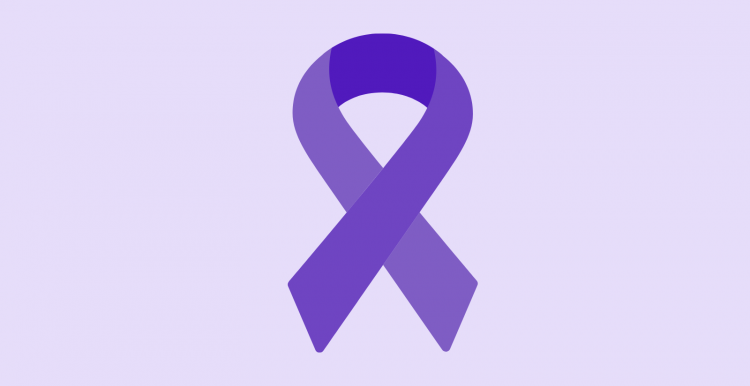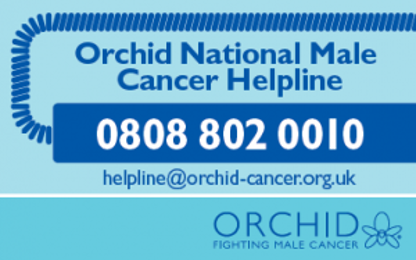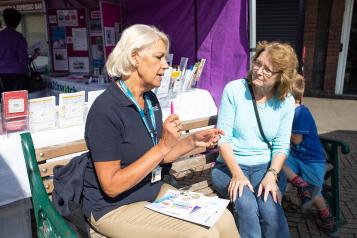Testicular Cancer Awareness Month 2022

Each year around 2,400 men in the UK are diagnosed with testicular cancer. That is more than six diagnosed cases every day.
Testicular cancer is statistically the most common type of cancer to affect men between the age of 15 to 34, with the highest incidence rate being in males in the 30 to 34 age group.
Since the early 1990s, testicular cancer incidence rates have increased by more than 27% in males in the UK. According to scientific research, they are believed to continuously rise by 12% to 10 cases per 100,000 males until 2035.
If you or someone close to you has been diagnosed with testicular cancer, knowing what to expect can help you prepare for your treatment and accelerate your recovery.
Here you can find out all about testicular cancer, including what it is, symptoms, a self-checkup guide, treatment options, and points of contact if you need guidance, counselling, or any support.
1. What is testicular cancer?
Testicular cancer is the uncontrolled growth of abnormal cells in either one or both testicles. Located behind the penis in the scrotum, the testicles are the male sex glands and produce testosterone and other male hormones.
Sperm production and storage are also associated with the testicles.
Testicular cancer can either remain within the testicle or spread to lymph nodes in the abdomen or pelvis.
2. How do I check for testicular cancer?
The best person to know about your body is you. Make an appointment with your doctor if you notice
anything out of the ordinary or if something does not feel right when performing self-checkups.
Keep in mind: An early diagnosis and treatment increase the chances of a complete and successful
recovery!
Taking the time to examine and check up on your testicles from puberty onwards helps you understand how your testicles typically look and feel, so you are more likely to detect any subtle changes.
Check your testicles for:
- size and weight
- any lumps, bumps or swellings
3. When to see your doctor You should see your doctor if you have:
- an unusual lump, bump or swelling in one of your testicles
- sharp pain in the testicle or scrotum
- a feeling of heaviness or sudden buildup of fluid in your scrotum
- an unusual difference between one testicle and the other
Your symptoms might not necessarily be linked to cancer, but it is essential to get them checked by a doctor.
4. What happens during your GP appointment?
Your doctor will inquire about your symptoms, your general health, examine your testicles and feel the lymph nodes at the top your legs. You might also have blood tests. Following your examination, your doctor might refer you to the hospital for further tests, such as ultrasound, MRI or CT scans or directly to a specialist if any changes in size, shape, consistency or weight occur.
Make sure to obtain a detailed explanation from your GP if you do not require a referral or tests, but you noticed apparent changes in your tentacles during self-exams or self-checkups.
Come back for an appointment immediately if your symptoms worsen or change!
5. What kind of treatment will I need?
Testicular cancer can be treated in many ways. The main types of treatment include surgery, radiation, chemotherapy, and high dose chemotherapy with stem cell transplant.
The treatment advised for you depends on various factors:
- The stage and grade of the cancer
- The chance that a type of treatment will cure cancer or help in some way
- Your age & general health
- Your feelings about the treatment and possible side effects that come with the individual treatment
Although testicular cancer is one of the most treatable types of cancer, with a successful treatment rate in more than 95% of cases. Monthly self-checkups and regular doctoral visits are a chance of preventing any possible future negative health implications. Cancer diagnosed at an early stage, before it had the opportunity to spread, is overall more likely to be treated successfully. If cancer has spread, treatment becomes more complex, and the chance of future adverse health implications rises.
So, keep in mind: Spotting cancer early increases your chance of complete recovery!
Below are some examples of how spotting cancer early can make a real difference:
- more than 95 out of 100 men (more than 95%) will survive their cancer for one year or more after they are diagnosed
- 95 out of 100 men (95%) will survive their cancer for five years or more after diagnosis
- around 90 out of 100 men (approximately 90%) will survive their cancer for ten years or more after diagnosis
Also:

For useful resources please see Cancer Research UK
Support:
If you have a query about testicular cancer or if you or someone close to you has been affected and you want to talk things through or find support,
Call free on: 0808 800 4040
Monday to Friday — 9am to 5pm
Or for general enquiries contact at: supporter.services@cancer.org.uk
If you cannot call, you can email Cancer Research UK using a contact form and you will receive an answer within 3 to 5 working days.
Link to contact form: https://www.cancerresearchuk.org/about-us/contact-us/talk-to-our-nurses?wssl=1

Orchids mission is to save lives by providing support to men with testicular, prostate, and penile cancers, encouraging pioneering research, and creating awareness.
About Orchid
In 1996, former testicular cancer patient Colin Osborne founded Orchid, the only UK-registered cancer charity dedicated exclusively to male cancers, specifically prostate, penile and testicular. Dedicated medical research programme, educational awareness campaigns and support services – Orchid provides support and information for people affected by male cancer.
If you have been affected by cancer and would like to support other men and their families or get information on local support groups please get in touch.
- Orchid Cancer Charity.
- 60 Grays Inn Road. London. WC1X 8AQ.
- If you are affected by the above mentioned types of cancer, you can get support at: 0203 745 7310 or by email at: nurse@orchid-cancer.org.uk. or helpline@orchid-cancer.org.uk
The Orchid National Male Cancer Helpline provides free support to anyone affected by male cancer.
Monday, Wednesday, and Friday from 9.30am-5.30pm. All calls are confidential.
Have you been recently diagnosed with testicular cancer, or are you someone who has battled testicular cancer in the past?
Share your story. Talking about it helps raise awareness and simultaneously reduces the stigma around cancer. It can help others cope with treatment or even give people the courage to speak about their diagnosis openly and seek professional help or join local support groups. It might also motivate people to take preventive action and engage in regular self-checkups or GP visits.
Don’t be afraid. Cancer is a word, not a sentence. Share your story.
If you want to share your experience of seeking cancer information and support in Bromley you can complete our survey.
Visit www.surveymonkey.co.uk/r/cancerinformationbromley or give us a call on 020 3886 0752 and we are happy to complete the survey over the phone with you.


